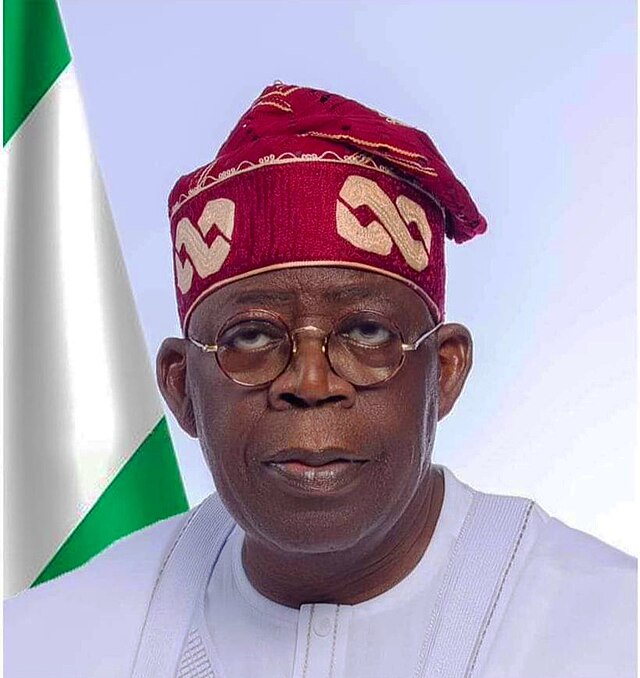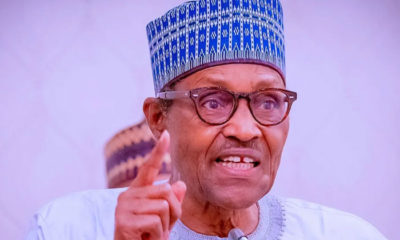Energy
FG To Commission Nedogas 300 MMscfd Kwale Gas Gathering Facility

Nedogas Development Company Limited (NDCL), a Joint Venture company between Xenergi Limited and NCDMB Capacity Development Intervention Company, has in collaboration with the NNPC Gas Infrastructure Company (NGIC), a subsidiary of the Nigerian National Petroleum Company (NNPC) Limited, successfully completed the construction and technical commissioning of a 300 MMscfd Capacity Kwale Gas Gathering (KGG) and injection facility located in the Umusam Community, near Kwale in Delta State, Niger-Delta, Nigeria.
The formal commissioning ceremony of the facility will be performed by the Honorable Minister of State for Petroleum Resources (Gas), Rt. Honorable Ekperikpe Ekpo on June 6, 2024.
The Minister will be supported by the Governor of Delta State, Rt. Hon. Sheriff Francis Orohwedor Oborevwori and the Executive Secretary of the Nigerian Content Development and Monitoring Board (NCDMB), Engr. Felix Omatsola Ogbe.
The KGG Facility was designed to handle stranded gas resources in Nigeria’s OML56 oil province by providing the opportunity for independent operators in the area to monetize natural gas from their fields through the gas gathering, compression, injection and metering infrastructure of the KGG for quick access to market.
The KGG hub, which has been tied-in to the NGIC-owned and operated 48-inch OB-3 gas trunk line, is now fully commissioned with gas injection capacity totaling approximately 50 MMscfd comprising of 20 MMscfd from the Nedogas Plant located 3km away in Energia’s Ebendo field and another 30 MMscfd coming from the Matsogo field operated by Chorus Energy Limited. Injected gas volumes are gradually and steadily being ramped up.
This project represents a significant milestone in Nigeria’s decade of gas initiative as well as a major achievement in the quest to provide gas into the OB3 trunk line and monetize natural gas resources from the OML 56 producer cluster.
With the successful injection of gas from the Energia/Oando JV and the Chorus operated Ebendo and Matsogo fields respectively into the OB3, the KGG Facility is now poised to receive additional gas from nearby fields including those operated by First Hydrocarbon Nigeria (FHN), Pillar Oil, and Midwestern Oil & Gas, all aimed at positioning KGG as a fully-fledged gas-gathering facility and hub with single point injection of up to 300 MMscfd of gas into the OB3 via the KGG tie-in.
The plan is to expand the capacity of the KGG facility to 600 MMscfd in the second phase. In addition to the gas delivery obligations of the facility, the KGG will also be supplying the Delta State Economic Zone (DSEZ) from an integrated supply node within the manifold at the hub.
The NDCL is a 100% Nigerian company with a proven interest in innovating and deploying cleaner energy solutions for Nigeria’s growth and economic development.
The NCDMB’s equity investment in NDCL is one the strategic projects geared towards actualizing the Federal Government’s aspirations in key areas of the oil and gas industry.
Most of the NCDMB’s third-party investments are targeted at actualizing the Federal Government Decade of Gas programme. The investments are in line with the Board’s mandate to build capacity and catalyze local projects in the Nigerian oil and gas industry as enshrined under the Nigeran Oil and Gas Industry Content Development (NOGICD) Act.
Prior to now, NDCL’s precursor, Xenergi Limited, developed a novel approach to providing cleaner energy sources which resulted in the birth of Nigeria’s first inland Integrated Power, Propane and LPG Modular Plant in partnership with Energia-Oando JV, located in Ebendo in Delta State, Nigeria.
The Nedogas Natural Gas Fractionation Plant, produces high-quality LPG and propane and with the capacity to process over 25 MMSCFD of associated natural gas.
The capacity of the plant is currently being expanded to 60 MMSCFD.
The Executive Secretary NCDMB enthused that the success story of NEDOGAS at Kwale, Delta State could be replicated in other oil- and gas-producing communities to minimise gas flaring.
He declared the Board’s readiness to continue collaborating with the company. “Their model should be extended to other parts of the country where gas flaring is continuing. They have shown that with the modular system, we can quickly remove flaring from our operations in Nigeria.”
The Managing Director of NDCL, Mr. Debo Fagbami explained that with the completion of the first phase of the KGG Facility, the proof-of-concept to readily monetize gas has now been established to the extent of eradicating the pain of seeing an invaluable resource being wasted.
Rather than just being concerned about ending gas flaring – he sees opportunities to harness the potential of the flare sites from these oilfields which will ultimately convert a “wasting” resource into an economic asset used to generate cleaner energy.
With an estimated 180 billion cubic feet of proven Natural gas reserves, Nigeria has the ninth largest concentration in the world, but sadly enough, the country continues to flare significant quantities of Associated gas which has relegated the health and environmental well-being of Nigerians to the background for over 60 years.
Natural gas remains a relatively clean fossil fuel and represents a viable transition to renewable energy which plays a pivotal role in powering the growth of developing economies like Nigeria.
The KGG facility is set to create hundreds of direct and indirect jobs for indigenes of the host and nearby communities.
Energy
NLNG Improves Nigeria’s Domestic LPG Supply Operational Efficiency

In line with its continuous improvement culture, the Nigeria LNG Limited (NLNG) will be working closely with its stakeholders to improve operational efficiency in its domestic Liquefied Petroleum Gas (DLPG) supply in Nigeria.
According to a statement from its General Manager, External Relations and Sustainable Development, Sophia Horsfall, this was highlighted at an engagement session with stakeholders in Lagos.
It was gathered that the NLNG plans to enhance engagement and improve operational efficiency of its LPG supply through digitalisation of some of its processes which include a new platform designed to streamline regulatory processes, optimise risk management, and enhance the buyer experience. The platform will feature IT-supported relationship management, automated issue resolution, centralised real-time payments, and improved case management systems, ensuring a seamless supply process despite market shifts and external pressures.
ALSO READ: Ifon-Ilobu Crisis: Adeleke Assures Of Quick Restoration Of Peace
Manager, Commercial Contract Management, NLNG, Tolulope Longe, reiterated that the planned improvements will enable and consolidate NLNG’s resolve to delivering 100% of its LPG supply to the Nigerian market.
She said a strategic roadmap was in play to ensure the achievement of NLNG’s longstanding goals of LPG being accessible and available in the country, aligning with its vision of being a globally competitive energy company, improving lives sustainably. She also harped on the significance of these improvement initiatives and the Company’s push for LPG utilisation as a clean energy source alternative to kerosene and other fossil fuels
Longe noted that the Company remained focused on growth and sustainability of the LPG market by continuously enhancing its supply processes in collaboration with offtakers. She stressed NLNG’s commitment to collaborating with stakeholders to maintain pricing stability and long-term market viability. While acknowledging industry concerns, she noted the importance of operational efficiency in meeting market demands.
NLNG aims to strengthen stakeholder engagement and improve market efficiency in the LPG sector through enhanced customer interactions, minimised schedule disruptions, timely confirmations and deliveries, and prioritisation of customers with demonstrable capacity. As it adapts to market realities, NLNG remains committed to driving sustainability and delivering lasting value to Nigerians.
Energy
Savannah Energy Completes SIPEC Acquisition

In line with its announcement of 19 March 2024, Savannah Energy has completed the acquisition of Sinopec International Petroleum Exploration and Production Company Nigeria Limited (SIPEC).
Making the revelation, an elated Chief Executive Officer, Savannah Energy, Andrew Knott, said, “We are delighted to announce the completion of the SIPEC Acquisition – the achievement of one of our core business priorities for 2025. Our focus at the Stubb Creek Field will now turn to progressing the expansion project, which we expect to increase production by almost three quarters over the course of 2025/26. I look forward to updating shareholders on this in the coming months, as well as on the progress we make towards achieving the other core business priorities we outlined to shareholders earlier this month.”
He expressed gratitude to the Nigerian government for making the acquisition possible, having required several levels of regulatory approvals.
ALSO READ: Tinubu Plans 10,000 Electric Vehicles For North-East
“I would like to thank the Government of Nigeria for the support that they have shown our Company in approving the SIPEC Acquisition and I extend a warm welcome to the SIPEC employees joining Savannah today,” he added.
Biztellers reports that the SIPEC’s principal asset is the 49% non-operated interest in the Stubb Creek oil & gas field (“Stubb Creek Field”), which is operated and 51% owned by Universal Energy Resources Limited (a Savannah affiliate company).
The SIPEC Acquisition increases Savannah’s Reserves and Resources base by approximately 30% from 151 MMboe to 197 MMboe. It adds 227 Bscf of 2C gross gas Resources at Stubb Creek Field, securing significant additional long-term feedstock gas available for sale to Accugas customers.
It was gathered that the transaction consideration was fully funded through a drawdown under a US$60 million Reserve-Based Lending debt facility arranged by The Standard Bank of South Africa Limited. At completion the cumulative consideration paid was approximately US$35.1 million (inclusive of approximately US$19.5 million of cash available to SIPEC), with US$2 million in deferred cash consideration payable in eight quarterly installments post-completion.
Savannah now intends to commence an up to 18-month expansion programme, which is anticipated to increase Stubb Creek Field gross production from an average of 2.7 Kbopd in 2024 to approximately 4.7 Kbopd.
Stubb Creek Field, located in Akwa Ibom State, Nigeria, is a producing oil field with considerable undeveloped, non-associated 2C gas resources. As at year-end 2024, Stubb Creek Field had an estimated 11 MMstb of 2P gross oil Reserves and 515 Bscf of 2C gross gas Resources1.
Commercial oil production started at Stubb Creek Field in 2015, with cumulative production of 8.1 MMstb to 31 December 2024. Oil produced at Stubb Creek Field is processed through production facilities onsite and then exported to the Qua Iboe terminal via a 25 km pipeline.
The Stubb Creek Field was converted to a 20-year petroleum mining lease in accordance with the Petroleum Industry Act 2021 and effective from 1 December 2023.
Energy
Shell On Place Of Infrastructure In Developing Nigeria’s Gas resources
Shell has called for the development of infrastructure to promote the growth of domestic gas and monetisation of the resource.
At a panel session at the just concluded Nigeria International Energy Summit (NIES) in Abuja, Managing Director Shell Nigeria Gas (SNG) Ralph Gbobo, said, “The infrastructure will support the delivery of gas from producers to consumers in an efficient way that is also transparent and cost effective.”
Ralph described infrastructure as the bedrock of a thriving gas industry, citing the Escravos – Lagos Pipeline System (ELPS) which feeds the domestic gas market as an example. He said: “If we can fully implement our regulations, a key one being the Network Code and maintain a stable Network where investors can get their returns, I can guarantee that we will see more players come into this space.”
ALSO READ: Shell Exhibition Delivers Value At Energy Summit
SNG which was established in 1988 has led the way in the provision of gas infrastructure in Nigeria, building gas distribution systems in Rivers, Abia and Ogun states through which it delivers gas to over 140 domestic, industrial and commercial customers. Last year, the company signed an agreement with the Oyo State Government to build a gas distribution infrastructure with the intention of delivering gas to businesses in the state and beyond.
Ralph explained: “Our experience at SNG shows that the task of expanding the Nigerian domestic gas market is a collective responsibility and not to be done by just a few players. It requires inputs from the regulatory, upstream, midstream and downstream sectors. The key to unlocking all these inputs is driving and implementing the right polices. The implementation of clear policies and incentives, allows for more investors to come into the domestic gas market be it in terms of gas production or infrastructural development. Investors need to be assured of a stable regulatory and fiscal market where their investments are guaranteed.”
He added: “Shell Companies in Nigeria have invested across the entire value chain of gas — Upstream, Midstream and Downstream having understood the potential of the commodity to accelerate industrial and economic growth in Nigeria.”






















